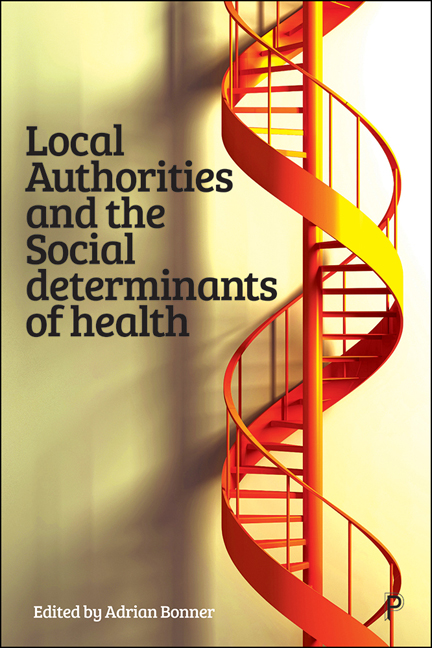Book contents
- Frontmatter
- Dedication
- Contents
- List of Figures, Tables and Boxes
- Notes on Contributors
- Acknowledgements
- Foreword
- Summary
- Introduction: Key Sociopolitical Changes Affecting the Health and Wellbeing of People
- Part I Health, Social Care and Community Wellbeing
- Part II The Role of Local Authorities in Promoting Health and Wellbeing in the Community
- Part III Local Authority Commissioning
- Part IV The Third Sector
- Part V Socio-Economic Political Perspectives
- Conclusion
- Appendix: COVID-19 Timeline
- Index
13 - The Human, Learning, Systems Approach to Commissioning in Complexity
Published online by Cambridge University Press: 25 March 2021
- Frontmatter
- Dedication
- Contents
- List of Figures, Tables and Boxes
- Notes on Contributors
- Acknowledgements
- Foreword
- Summary
- Introduction: Key Sociopolitical Changes Affecting the Health and Wellbeing of People
- Part I Health, Social Care and Community Wellbeing
- Part II The Role of Local Authorities in Promoting Health and Wellbeing in the Community
- Part III Local Authority Commissioning
- Part IV The Third Sector
- Part V Socio-Economic Political Perspectives
- Conclusion
- Appendix: COVID-19 Timeline
- Index
Summary
Introduction
It is now widely accepted that the realm of public service is complex (Haynes, 2003; Bovaird, 2008; Rhodes, 2008; Lowe and Wilson, 2017). This has a number of profound consequences that public servants must address in order to successfully navigate the realm. This chapter will argue that in order to meet these challenges, public servants need new, complexity-informed tools with which to manage the provision of public service.
This chapter will explore what is required of commissioners in order to create positive social outcomes (such as improved wellbeing, increased employment or reduced crime) in complex environments. It will explore this question through the lens of public sector performance measurement and management (PSPMM), and how this has evolved towards increased complexity by moving from an output (activity) to an outcome (results) focus.
It will explore the different aspects of complexity that arise when seeking to commission activity that creates positive outcomes for citizens, and what a complexity-informed response requires. The chapter will then reflect on the way in which these requirements challenge existing public management arrangements, particularly in the field of PSPMM, as it applies to commissioning and performance management.
Finally, the chapter will identify the emergent ‘Human, Learning, Systems’ (HLS) (Lowe and Plimmer, 2019) approach to the funding, commissioning and management of public service, and provide examples of this approach in action.
The complex nature of creating public service outcomes
It is increasingly common in the broader management literature to understand that managing any 21st-century organisation is a complex task. This can be seen in the prominence of literature concerning management in ‘Volatile, Uncertain, Complex, Ambiguous’ contexts (Johansen and Euchner, 2013; Bennett and Lemoine, 2014).
This chapter argues that there are four aspects of complexity presented by such problems for commissioners who want to achieve positive outcomes:
experiential complexity, which results from the variation in how outcomes are experienced by individuals, and the multiplicity of pathways to shared outcomes across the population;
compositional complexity, which results from the interdependence and interdeterminance of causal factors leading to the creation of outcomes;
dynamic complexity, which results from the co-evolution of interacting factors and the instability inherent to complex systems;
governance complexity, which results from the autonomy of public service organisations and other agents, increased by the fragmentation of modern public service landscapes.
- Type
- Chapter
- Information
- Local Authorities and the Social Determinants of Health , pp. 241 - 262Publisher: Bristol University PressPrint publication year: 2020



